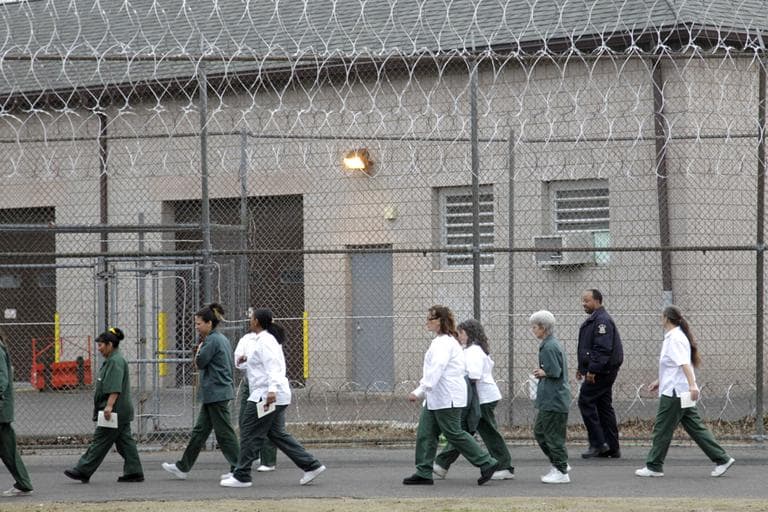Advertisement
Dramatic Shift In U.S. Prison Populations
Resume
Over the past decade, there has been a noticeable change in the prison population.
A smaller percentage of black women are being incarcerated, and that decrease is almost matched by the increase of white women who are going to prison.
"Given the past 40 years of the exploding prison population, this is the first time we've seen a shift like this."
Marc Mauer
That's one of the most striking findings from a new report by The Sentencing Project, a non profit in Washington, D.C.
The Sentencing Project collected information about who went to prison from 2000 to 2009, from the federal Bureau of Justice Statistics, part of the Justice Department.
The picture it paints is one of a great shift in the makeup of U.S. prisons.
"What we saw in the first decade of the 21st century was a dramatic shift in the racial composition of prison populations," Marc Mauer, executive director of The Sentencing Project, told Here & Now. "For the first time in nearly 40 years, we saw a sharp decline in the number of African Americans in prison - particularly women. We saw a steep rise in the number of white women going to prison, and among Hispanics we saw we saw a rise among women and a slight decline among men. Given the past 40 years of the exploding prison population, this is the first time we've seen a shift like this."
The drop in the number of black women in prison likely has to do with a shift in sentencing policies for drug offenders, Mauer said. Crack cocaine has also become less of an issue since the crack epidemic of the '80s and '90s.
He speculates that the spike in the number of incarcerated white women has to do with the rise of methamphetamines (meth) and an increase in penalties for the use of the drug.
In spite of the shift, the prison population is still disproportionately African American.
"Blacks are still disproportionately incarcerated at very shocking levels really," Mauers said. "Black women are now incarcerated at three times the rate of white women, black men are incarcerated six times more than white men."
Guest:
- Marc Mauer, executive director of The Sentencing Project.
This segment aired on March 28, 2013.